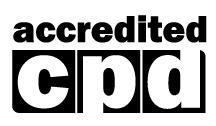Ethical Issues in the Law Firm Setting
Ethical Issues in the Law Firm Setting 
Our first annual conference was a huge success! View the summary and photos, or watch the webcast (with transcript). Or see the article in the Law Times.
The following are abstracts of the presented papers/presentations. We hope these papers will be published shortly.
“Ethics, Confidentiality and Privilege”, Malcolm Mercer
The courts protect solicitor-client privileged information applying common law. The Law Societies regulate the conduct of lawyers with respect to the use and disclosure of client information. Much of the same information is protected by these two different regimes but scope of the information protected and the extent of the protection differ. Where lawyers bring claims, or are subject to claims, relating to client representation, both regimes must be considered. This paper considers the overlaps and gaps between effect of these regimes and whether the Law Society conduct rules could be improved. This paper also considers whether it is appropriate to treat the use of privileged information in claims between clients and their lawyers as waiver.
“Solicitor-Client Privilege for Ethics Counsel: Lessons for Canada from the United States”, Stephen G.A. Pitel
Canadian law firms are increasingly designating lawyers within the firm to act as ethics counsel, advising the firm’s other lawyers. This article considers whether communications with ethics counsel should be subject to solicitor-client privilege, such that the firm would not be required to disclose them to the client. While there is virtually no analysis of this issue in a Canadian context, it has been raised in both jurisprudence and commentary in the United States. The first part of this article reviews the American position. The article’s second part considers the Canadian authorities that bear, at least indirectly, on the issue and makes recommendations for the development of Canadian law. For published article see November 2013 issue of the Canadian Bar Review, http://www.cba.org/cba_barreview/Search.aspx?VolDate=11%2f01%2f2013
“Evolving Ethics, Revolving Door”, Emilie McLachlan Maxwell
What is the “revolving door”? What mischief might be caused by this phenomenon? Do lawyers have special obligations when moving through the “revolving door”? If so, where, if anywhere, might these obligations be found? These are a few of the questions that will be addressed—and aim to be answered—in the presentation, “Evolving Ethics, Revolving Door”.
“Is Self-Regulation of the Legal Profession in the Public Interest?”, John Pearson
Across the Commonwealth lawyers have been stripped of their privilege to self-govern. The notion that an independent bar must be self-regulating is no longer tenable. To establish its entitlement to self-regulating status, the legal profession must demonstrate that its paramount regulatory concern is the public interest. Traditional arguments for self-regulation have focused on its compatibility with an independent bar and the technical knowledge that lawyers bring to discipline proceedings against lawyers. Opponents of self-regulation have focused on the conflict of interest inherent in a profession that delivers legal services self-regulating in the interest of the public that consumes those services. Is Ontario’s legal profession invulnerable to the winds of change that have swept away self-regulation elsewhere, or is it a major scandal away from losing a privilege it has enjoyed for hundreds of years?
“Ethical Infrastructure in Canadian Law Firms”, Amy Salyzyn
Conventional models of regulating lawyer conduct tend to be largely reactive. In most cases, law society disciplinary regimes respond after a complaint is filed alleging that a lawyer has engaged in some kind of professional misconduct. One obvious shortcoming to this approach is that concerns are addressed only after they become problems. For clients and affected third parties, this type of “after the fact” regulation often provides little solace: lawyer discipline can be a lengthy, time-consuming process that yields little in the way of meaningful relief. Obviously, it would be preferable if the problem never occurred in the first place. So, what if we didn’t wait for problems to occur? What if problematic lawyer conduct could be prevented? What if we had a more proactive regulatory regime for governing the ethical conduct of lawyers? This presentation will introduce the topic of promoting effective ethical infrastructures in Canadian law firms, discussing international developments as well as current challenges and opportunities in relation to adopting more preventive, educative, and institutionally focused regulatory approaches in Canada." For the Canadian Bar Association’s Assessing Ethical Infrastructure in Your Law Firm: A Practical Guide, see http://www.cba.org/CBA/activities/pdf/ethicalinfrastructureguide-e.pdf
“My Partner’s Keeper? The Duty to Report”, John Chapman
The obligation to report a colleague is an issue on which the Rules of Professional Conduct provide no specific guidance. Indeed, the Rules may treat the obligation to report a colleague in the same manner as an obligation to report any other lawyer. Given that a decision to not report a colleague may be tainted by issues of self-interest it is arguable that different considerations apply. In particular, to the extent the Rules make reporting of possible professional misconduct discretionary (and they do in the vast majority of cases), one can ask whether a lawyer who fails to report because it is against their self-interest (or the interest of their law firm) to report may be guilty of professional misconduct.
Thanks to all who presented and who attended.